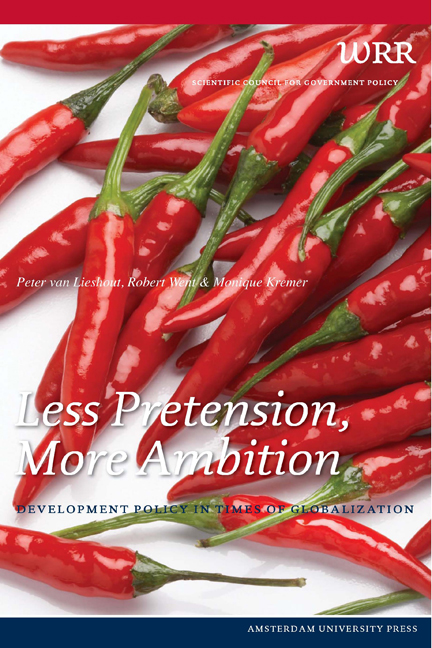Book contents
2 - The Development Aid Split
Published online by Cambridge University Press: 14 January 2021
Summary
Development aid aims to contribute to a better world. There are all kinds of motives for creating a better world and each has its own emphases and leads to a specific design of development aid. The roots of these different motives can all be found in the current practice of development aid, therefore making it the result of a blend of motives. The more divergent the motives, the more difficult it is to realize a productive whole when designing development aid. The fact that the motives – which each have their own value – are so different has brought increasing pressure to bear on the design of development aid in recent decades. This pressure is becoming more and more of a problem. With a view to showing that this is the case, we start this chapter with an analysis of the motives.
TWO BASIC MOTIVES FOR DEVELOPMENT AID
The history of Dutch development aid illustrates the way the Western world has regarded aid over the years. When, on 3 October 1949, the Dutch government first decided to make funds available for development aid – while still receiving aid itself via the Marshall Plan (!) – its policy was shaped primarily by the process of decolonization. The Memorandum concerning the Dutch contribution to the programme of the United Nations for technical aid to economically under-developed countries (Ministry of Foreign Affairs 1950) must be read against the background of the Netherlands handing over power in Indonesia three months later, on 27 December 1949. The memorandum summarized the clear benefits of development aid for the Netherlands, such as an enhanced reputation, new export possibilities and, most importantly, finding something useful to do for all the superfluous experts in the field. “Now that Indonesia is going to lose its significance as an outlet for Dutch intellect, we will have to look for a field of activity in other areas like Africa, Latin America and Asia” (p. 7). All in all, the Netherlands decided to make 1.5 million guilders available, all with a view to transferring knowledge.
The processing of the post-colonial trauma initially had a strong influence on government policy in Western countries. In France, the Ministry for the Colonies was divided into two ministerial departments: one for “related states” and one for French overseas territories.
- Type
- Chapter
- Information
- Less Pretension, More AmbitionDevelopment Policy in Times of Globalization, pp. 25 - 48Publisher: Amsterdam University PressPrint publication year: 2010



